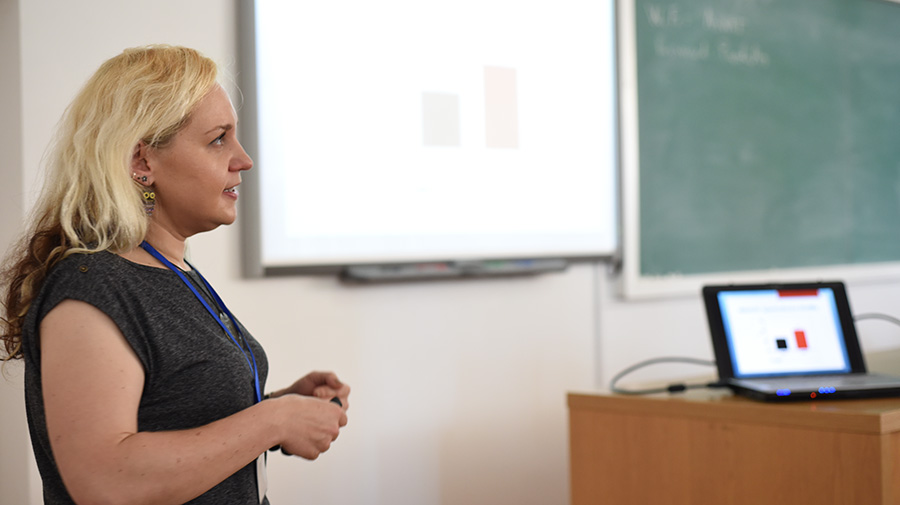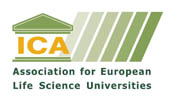"BIOTECHNOLOGY IN KNOWLEDGE-BASED BIOECONOMY"
Chair: Prof. Dr. Doru PAMFIL
University of Agricultural Sciences and Veterinary Medicine Cluj Napoca, Romania
Co-chair: Prof. Dr. hab. Monica BUTNARIU
Banat’s University of Agricultural Sciences and Veterinary Medicine ’’King Michael I of Romania’’ Timisoara, Romania
The Session IV: Biotechnology in knowledge-based bioeconomy held in the Blue Amphitheater, Building of the Faculty of Veterinary Medicine.
The Session IV had five oral presentations: a presentation from the USAMV Iasi; a presentation from the Slovak University of Agriculture in Nitra, Slovak Republic, Nitra, Slovakia; a presentation from the USAMV Bucuresti, Romania and two oral presentations from the Banat's University of Agricultural Sciences and Veterinary Medicine “King Michael I of Romania”, Timisoara, Romania.
During the session, working methods of the research area and their prioritization were discussed.
Also included in the section were seventeen posters. They were from the Slovak University of Agriculture in Nitra (1) and from the universities of USAMV Cluj (9) and Banat’s University from Timisoara (7).
There was a consensus among the participants that Biotechnology has the subcategories : Biotechnology and Biomedicine; Trends in Biotechnology; Animal Rearing and Pathology and Bioengineering of Animal Resources, which represent significant areas of endeavor for the Life sciences, with one that is and will stay up-to-date.
Even so, it is known that biotechnology is not a new field for the Life sciences, and that investigations had been made in analyzing the opportunities and challenges linked with biotechnology. Participants expressed that biotechnology, although of interest to the Life sciences, should be kept in perspective as one part of a broadly integrated program at the centers of research and universities.
The participants agreed that biotechnology is relevant across a range of Life science activities; too often, the focus of discussion appears to be almost entirely on opportunities associated with crop improvement. A major aspect of Life science work with animals is directly related to applications of biotechnology, often with direct links to cutting-edge science (for example in presentation from the Slovak University of Agriculture in Nitra, Slovak Republic, Nitra, Slovakia, and the presentation from the USAMV Bucuresti, Romania). Microbial organisms were noted in the discussion, particularly with respect to plant-soil relationships and other natural resource management areas (for example in the presentation from the USAMV Iasi). The centers for research and universities have discussed the understanding and assessing effects on agro-ecosystems associated with biotechnological research. Several speakers revealed the importance of considering the needs of the substandard (substandard farmers), in regard to the scientific and related socio-cultural issues.
Presentations:



